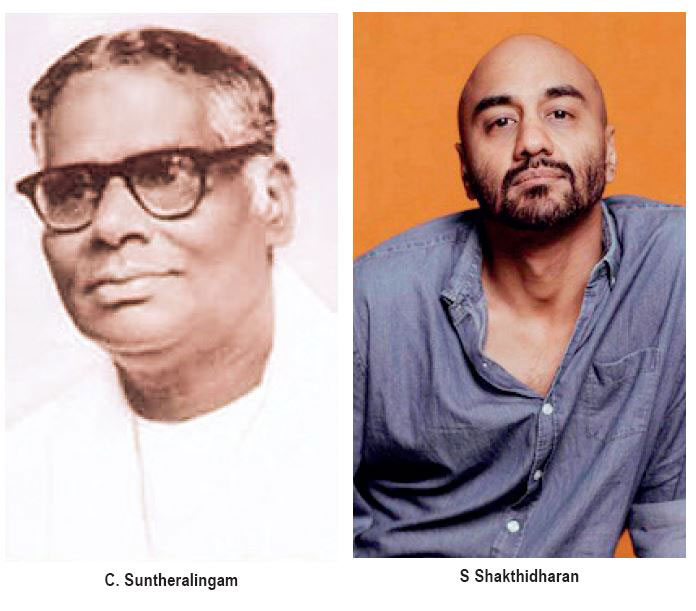Features
Father and Daughter – unique persons
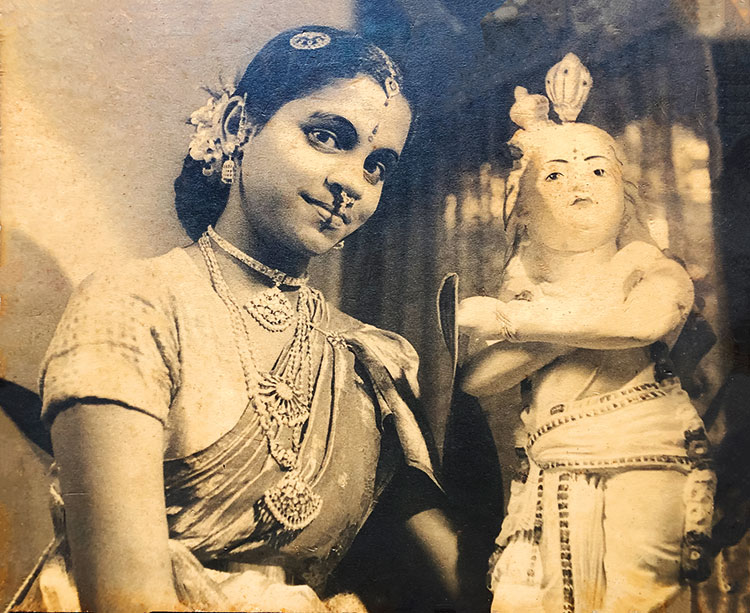
 In my last Sunday’s (October 6) article The Reality of the Present and Memories of the Past, I wrote about a young Tamil Australian from western Sydney – S Shakthidharan – whose play Counting and Cracking has been a resounding success in Australia and more recently in New York. I knew who’s who he was but did not wish to mention his family, except for the one fact that he is a great grandson of C Suntheralingam, a colossus of his time. This reticence since I had not got permission from a family member to mention them.
In my last Sunday’s (October 6) article The Reality of the Present and Memories of the Past, I wrote about a young Tamil Australian from western Sydney – S Shakthidharan – whose play Counting and Cracking has been a resounding success in Australia and more recently in New York. I knew who’s who he was but did not wish to mention his family, except for the one fact that he is a great grandson of C Suntheralingam, a colossus of his time. This reticence since I had not got permission from a family member to mention them.
Memories of a grandaunt of the playwright whom I befriended and admired very much kept twirling in my mind. The memories needed exposure through writing. Hence I wrote to her son Architect C Anjalendran for permission to write about her; permission kindly given. I suppose he could not refuse old me though he shies away from publicity. Thus I mean to dedicate this article to my friend Vatha and mention her father, both truly unique persons.
The playwright
S Shakthidharan,
known as Shakthi or Daran in the family, is a writer, director and producer of theatre and film and composer of original music. Born in Colombo, he is now an Australian married to Aimee Falzon and has one child. However, mostly due to his mother’s influence, he has preserved and protects his Sri Lankan heritage and Tamil ancestry. He wrote his debut play Counting and Cracking (C and C) with Eamon Flack and received “critical, commercial and community acclaim.” He won prizes too. His most recent play, also in collaboration with Flack, is Jungle and the Sea, which too was “met with rave reviews and had a profound impact on the Sri Lankan community.” It won the 2024 Victorian Premier’s Literary Prize and four Sydney Theatre Awards. Shakthidaran is Director of Kurinji which he founded and is part of other Australian drama companies.
Shakthidaran is Architect C Anjalendran’s nephew – his mother’s eldest sister’s daughter’s son – and I was told he, Anjalendran, is featured in the play. Thus Anandhavalli who is Shakthis’ mother and Anjalendran’s cousin was choreographer for the play C and C and featured in it as the protagonist’s mother Radha. The play is a family saga and so fortuitously retains the culture of an elite Ceylon Tamil family originally from Jaffna but living later in Colombo. A fact worthy of mention is Anjalendran saying that “The play germinated in my little house while Daran read my grandfather’s letters which I was getting ready for publication.” Anjalendran’s published book My Grandfather’s Letters was launched August 10, 2016, “presenting present insight into Suntheralingam’s life and a version of events that contributed to Sri Lanka’s tumultuous recent history”; mostly the terrible effects of the Sinhala Only policy.
But enough about this remarkable young man you can google about. I move on…
C Suntheralingam
The father in my title is academic, mathematician, fiery and controversial politician who more than once shook the Ceylonese political firmament. He was dedicated to any cause he undertook to promote. Perhaps it is permissible to label him maverick as he was an unorthodox, independent minded person who did things his way.
Born August 19, 1895, to Chellappah and Meenachchi in Urumpirai, northern Jaffna, he had four eminent brothers: C Nagalingam, Supreme Court judge who was Actg. Governor –General of Ceylon in 1954; C Panchalingam – medical doctor; C Amirthalingam – Director Fisheries and C Thiagalingam a leading lawyer.
Suntheralingam first was at St John’s College, Jaffna, and then at St Joseph’s Colombo. In 1914 he entered the University of London and graduated with a BSc Hons in Mathematics. Next Balliol College, Oxford, awarded him a double first in math tripos. He married Kanagambikai Ambal, and had two sons and four daughters: Lingambikai, Lingavathy, Lingamani and Lingeswari.
His career was distinguished but directed solely by him. Selected in Britain to the Indian Civil Service he opted to join the Ceylon Civil Service in 1920. He resigned this prestigious post to become Vice Principal of Ananda College, Colombo. He then moved to the Ceylon University College as Professor and First Chair of Mathematics. He was called to the Bar from Gray’s Inn in 1920 and practiced law in this country.
Interested in politics, he retired from academia in 1940 and entered the fray but did not succeed in entering the State Council in two by-elections. However, he successfully contested the Vavuniya electorate in the 1947 Parliamentary elections and was sworn in as Minister of Trade and Commerce in D S Senanayake’s first Cabinet of independent Ceylon. Objecting to a bill regards Indian and Pakistani residents’ citizenship he walked out of the House and refused DS’s offer to continue in government.
He sat in the Opposition. Resigned from Parliament in 1951 in protest of the national flag, but was re-elected and was vociferous in protest against the Sinhala Only Act. During the 1955 Throne Speech debate, he said, if the changes went ahead the Tamils would demand a separate state. He stood against the disenfranchisement of Indian Tamils making them stateless. “If the Buddha were to come to the country today, he would be deported.” He continued to be in and out of Parliament until he retired to live in Vavuniya founding the Eelam Thamil Ottrumai Munnani (Unity Front of Eelam Tamils) in 1959. He was the first MP to be physically lifted with his chair he clung to and taken out of the chamber.
The Daughter
His second daughter, Lingawathi known as Vatha, very fortuitously befriended me about three decades ago. This needs elaboration. My second son was a student in the SL Institute of Architects for one year in 1988 and came under the tutelage of Archt. C. Anjalendran. This young architect, on the rise, lived with his mother and had his studio toward the bottom of Gregory’s Road, Colombo 7, where his students gathered to be ‘taught’. When classes were over, his mother would chat to some of the students, my son being one, whose admiration of her grew very much.
“You must meet her,” he would tell me. “Anja’s mother is so different. She sits in the verandah in her rocking chair and is so friendly.” My son went overseas to complete his studies but on his first holiday back home, I went with him to see Vatha. By then Anjalendran had moved to his own home in Battaramulla. Instant mutual liking; me admiring and she very informal and friendly. These visits of my son every time he came on vacation continued, but I progressed to visiting her on my own, walking all the way to her home, often stopping over en route for a quiet time of reflection in the Vipassana Bhavana Centre. Those chats with Vatha were very interesting, informative and inspiring too.
Lingawathi Suntheralingam was born June 7, 1927. Educated at Ladies’ College she was (probably) conscripted to be her father’s secretary, now a fully committed politician. She and her sisters were expert Bharathanatyam dancers and later Vatha was heavily involved in preparing a dancer for her arangetram – debut onstage performance of a student of Indian classical dance and music following many years of training. Vatha would design the clothes, most often dress the girl, prepare the jasmine chains and deck them and jewellery. She gifted me several invitations for such performances.
She also took charge of dressing brides for her friends and relatives, her taste in dress and ornamentation so admired.
She was married to Kanakenthiran Chelvadurai in 1948. They had three sons: Harendran, Anjalendran and Suntherenthiran and three grandchildrem – two boys and one girl – Radhika – born to the youngest son. While her two sons and sisters with families migrated due to the problems faced by Tamils over the Sinhala Only Act and more horrendously due to the 1983 local holocaust created by Sinhalese madmen, Vatha and Anjalendran stayed on in Sri Lanka, to our benefit.
She would rock gently in her chair, and after serving me with a Tamil finger food like vadai, she would regale me with anecdotes and reminiscences. One was that on her wedding day with even the bridegroom arrived and her hair being decked with bridal jewellery and jasmines, her father summoned her to type a letter he dictated!
As she grew older she did not show marks of aging since her mind was agile and she took pleasure in people visiting her and chatting. She was ill but only for a few days in late 2015 and died on November 3; a great loss to her relatives and friends. Anjalendran could not take it. Memories of her remain: infused with her vibrancy, gentle love for all and her chuckle which was a mix of outright laughter and giggle. Vatha too was unique with femininity and strong willed.
Features
Inconsistencies and disconnects

by Nadeem ul Haque and Shahid Kardar
THERE are contradictions in the policies being pushed by the IMF in the latest programme. While it played a crucial role in liberalising the economies of the communist bloc, it now appears to support heavy-handed regulation and price controls in a developing country like Pakistan. Such inconsistencies raise questions about the adaptability and relevance of IMF programmes in different contexts.
In our case, the domestic market continues to influence the pace, pattern and level of growth. Policies are focused on protecting an industrial structure that produces low productivity/ low value-added goods. The growth of one industry has created a market for another — flourishing with varying degrees of inefficiencies. The result is that all such markets have grown together.
The outcome is a formal private sector whose habits and investments have not changed over time. Exporting a similar range of goods (with modest upgrading to higher value-added goods) depends on subsidies and concessions.
We believe Pakistan needs a comprehensive policy overhaul, moving away from excessive regulation and a tax-first approach towards a strategy that promotes market development, innovation, and economic productivity.
For this transformation to take place, greater engagement with local research and institutions is necessary. The findings of the Pakistan Institute of Development Economics (PIDE) suggest that Pakistan’s economy is being held back by structural flaws, not simply low tax revenues or energy pricing issues. Decentralising governance, reforming tax policy, and removing barriers to trade and investment are key to a more vibrant, competitive economy. International partners, including the IMF, must recognise these local realities and align their strategies accordingly.
Energy losses have brought the economy to its knees with the IMF’s only proposal being to increase prices to cover losses and hide inefficiencies. Not once has the IMF accepted that the need of the hour, as shown by local research, is to activate the market system, which has been on the anvil for almost 20 years.
The energy sector remains highly centralised; it is a one-buyer one-seller (government) model, with an outdated uniform pricing system that relies on cross-subsidies and prevents the development of competitive markets.
Perhaps the most central issue is the extreme centralisation of power within government and bureaucracy. A few civil servants wield disproportionate control, undermining the growth of key sectors like education, energy, and infrastructure. Energy losses can only be eliminated if the system is configured as independent units operating in a market. The IMF, however, has set up impossible goals such as privatising huge energy monopolies without an adequate regulatory framework and capability and allowing market forces to operate.
In 2024, the government is still trying to control prices through the bureaucracy. The IMF is silent on this key issue. With the fall of the Soviet bloc, we thought this issue had been dealt with and that the world had learnt price controls don’t work. Should the IMF not settle this issue of price controls in a programme?
As argued earlier, the governance system itself incentivises rent-seeking and political loyalty over merit and efficiency. Public resources are misallocated, and government officials benefit from a system that rewards perks like subsidised housing and overseas assignments instead of transparent cash salaries. PIDE suggests that a simple reform — monetising these perks into one transparent salary structure — could potentially unlock billions of dollars in investment by freeing up valuable real estate currently occupied as housing by government officials. In Islamabad alone, this reform could attract an estimated $55bn in investment, with similar potential in the other major cities.
The IMF and international partners have insisted on energy price hikes for over two decades, largely ignoring the fact that the problem is more about underlying issues of poor governance and mismanagement than inadequate pricing. Despite repeated calls for reforms that allow the market to work and take the centralised bureaucracy out of the power sector, no significant changes in management practices were implemented. Similarly, in the tax system, the focus has been on extracting more revenue, without addressing the convolutions of an inherently unstable tax structure and a rapacious regulatory environment or exploiting the opportunities for leveraging digital tools to facilitate compliance.
This disconnect between the IMF’s policies and realities on the ground has been exacerbated by a lack of engagement with local research. The IMF’s recommendations often seem more aligned with abstract economic models than, as argued in an earlier piece, with the economy’s on-the-ground complexities. For example, the IMF has continued to overlook local arguments that underline the absence of decent public services — even something as basic as security of life and property — and the unfair, unwieldy tax structure implemented by a predatory administrative machinery as key reasons for widespread tax evasion.
Fund programmes appear to be designed with no attention to investment. Through most programmes, the investment rate has been very low — an average of less than 15 per cent of GDP, while other growing economies average over 25pc of GDP. Why is our investment so low? The most important factors have been listed above and mentioned earlier.
If only the IMF had considered the trade-off between austerity measures and the sacrifice it demands from growth, confronted by a situation of high rate of unemployment with all its social implications, they would have arrived at the need to deregulate the economy, decentralise governance, get the government out of the habit of fixing prices and develop markets without bureaucratic interference. Additionally, it would try to seek open economy policies with a stable market-based undervalued, not overvalued, exchange rate.
A little humility is needed in the IMF and increased engagement with local research. Currently, it is captured by forces that want centralisation and a rent-seeking, controlled, non-market economy. Rather than chasing taxes with fickle and extractive policies like the Sheriff of Nottingham (and hope, in vain, that improved governance follows), perhaps the IMF could join those forces that are demanding serious reform for investment and growth. That is our only way out.
(The Dawn)
Nadeem-ul-Haque is former VC PIDE and deputy chair of the Planning Commission.
He is currently director at the think tank Socioeconomic Insights and Analytics.
Shahid Kardar is a former governor of the State Bank of Pakistan.
Features
Socks pulled knee high; advice to smirk at

 Cass means here the metaphorical socks of government servants in general. Particularly in the last couple of months many officers in government departments were not working even at half or quarter steam when they really should be at full steam when at their office desks, doing their work with as much speed and power as possible, as the idiom defines.
Cass means here the metaphorical socks of government servants in general. Particularly in the last couple of months many officers in government departments were not working even at half or quarter steam when they really should be at full steam when at their office desks, doing their work with as much speed and power as possible, as the idiom defines.
Many persons who went to get work done at a government office were treated with the least amount of courtesy, nay outright rudeness; were sent from pillar (this officer) to post (that officer) with much time wasted accompanied by frustration. In the good old days, when almost all did the job they were paid to do, government officials were named public servants. Then the rot set in, inflated by overstaffing in most offices, which meant work was passed from one to another, dis-service rather than due service given.
Now, with the larger system changed by the election of a new President and the appointment of an efficient PM and the other sole Cabinet Minister, work systems have changed all for the better. Two examples to prove my point.
A person, on behalf of a future tourist friend of mine, went to a certain office to get info on permits to visit places of cultural heritage in the country. He was greeted as Mahathaya and all his queries answered well and fully, so he emerged in no time satisfied; surprised, too, at the service he got.
A niece returned from a holiday in the UK on an Emirates flight, which disgorged about 300 at the Katunayake airport. Coming in from the duty-free shop she saw long queues at the entry visa processing area. Soon, a superior officer came along, waved her to follow him and, hey presto, extra cubicles with visa stamping officers appeared, so totally the desks added to around ten.
She was out of the airport in no time, after having been given very polite service and warm welcome smiles. Remember the queues formed when the new visa issuing system was started by some foreign conglomerate under Minister of National Security, Tiran Alles? The loud protest of an incoming Sri Lankan went viral on social media.
Usually, this euphoric state lasts a couple of months following the installation of a new government and the inertia and laissez faire attitude of public servants returns. We expect not this time. We feel the change in attitude and work ethic will continue. Did not President A.K Dissanayake address persons of a certain workplace and tell them in no uncertain terms it had to be work or be sent out?
Veteran politician’s recent advice
Heard and read ex-President Ranil Wickremesinghe’s advice to the public to cast their votes in favour of experienced politicians at the November general elections.
Good advice from an experienced politician but why the resulting smirk as expressed in my title? I quote RW from the news item in The Island of Monday 21: “In these difficult times it is vital that we have leaders in parliament who know how to handle an economic crisis.” He urges voters “to think across party-lines to support candidates who worked alongside him in the past two years as they played a key role in the recovery process and have the necessary experience. Underscoring the strength of the coalition that supported him at the last presidential election (sic in capital letters) he said: ‘I took over the leadership of the country at a time it had declared bankruptcy. At this juncture politicians of the UNP, Podu Jana Eksath Peramuna and SLFP came forward to shoulder that responsibility with me. They are now united under the New Democratic Front in the parliamentary race. They have proven experience the current times demand from them as members of parliament.’”
Approval anathema to us Ordinaries
Why does the expression ‘losing one’s marbles’ come to mind? Why does Cassandra use the adjectives unseemly, inappropriate, foolish, unwanted, to qualify ‘advice’?
There are so many coalitions of parties formed that Cass had to refer up membership of the New Democratic Front (NDF). Found the following top in the national list of the NDF: Dinesh Gunawardena, former speaker Mahinda Yapa Abeywardena, Faizer Mustapha, Tiran Alles, Ravi Karunanayake and Thalatha Athukorala.
So, RW recommends people to vote for such as those above, some associated with dishonesty and chicanery. To vote so they help straighten the economy of the country! One cannot help but remember others who were in his team, whether now in the New Demo Front or clinging onto other parties. Many characters within the 225 whose ouster was a battle cry of the Aragalaya are afloat in this election period. However, Cass singles out just three of them for mention: Rohitha Abeywardena, Mahindananda Aluthgamage and Prasanna Ranatunge who were his cabinet ministers and got him to contest the presidency as an independent candidate.
Bit of dung in pot of curd
Most Lankans are now strongly in support of AKD as President of this country. He has stepped forward very correctly so far. Thus, when Cass read a news item in The Island of Tuesday October 22, she read it three times over and ended up startled. Did he really say it? The title of the front-page report was: “General election: AKD wants one party rule – there is no need for an Opposition in Parliament”, reported by seasoned journo Shamindra Ferdinando.
Cass’ wondered whether he had been misquoted? Did he mean less of an opposition, more on the government side? Or did he mean the NPP will oppose themselves if their majority do not agree to new bills and rules?
The NPP wants a one-party rule. That generally is what a ruling party aims at but not at all what the citizens want. We have heard, agree and echo that the NPP should not get 2/3 seats or more in the House. A strong opposition is an essential necessity.
Features
BRICS taking centre stage in new world order
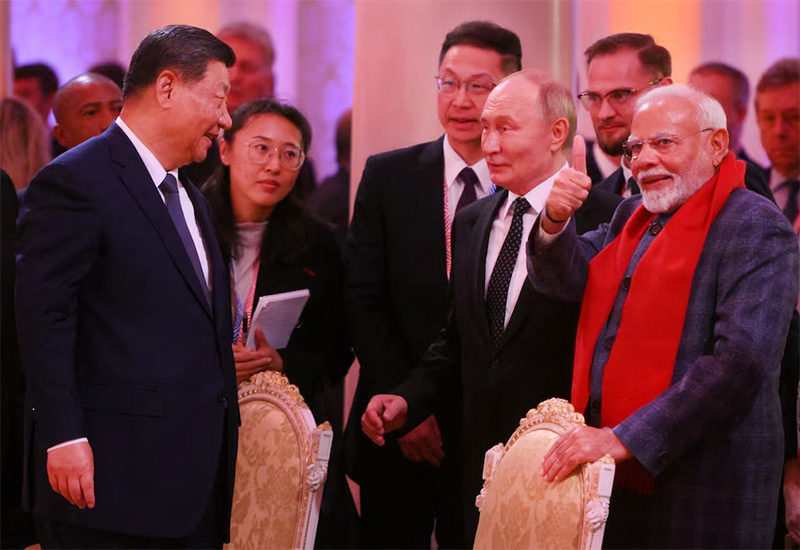
 A rush is on among numerous countries of the South to be members of the heavyweight BRICS grouping. This is a clear indication that these hopefuls are soundly perceptive of the changing balance of international economic and political forces.
A rush is on among numerous countries of the South to be members of the heavyweight BRICS grouping. This is a clear indication that these hopefuls are soundly perceptive of the changing balance of international economic and political forces.
Quite rightly, the latter states want to benefit from emerging, BRICS-centred economic growth prospects in particular and are fashioning their foreign policies accordingly. However, it is apparent that among some of these hopefuls, politics is proving as important as economics. Palestine, Syria and Myanmar are some cases in point.
For all intents and purposes, BRICS is the Southern answer, so to speak, to the hitherto North-centred international political and economic order. Quite rightly, it is seen as an effective challenger to the dominance of the G7. If the world’s hapless and vulnerable, such as Palestine, are aspiring for BRICS membership, the inference is inescapable that they are compelled to do so by their current powerlessness. That is, politics is primarily at the heart of their BRICS-related decision.
Since the US and its allies are firmly behind Israel, Palestine has no choice but to seek the security guarantees that BRICS may be seeming to offer it. Such considerations apply to most other powerless Southern states intent on gaining BRICS membership.
That is, the North is failing to meet some of the cardinal expectations of the more vulnerable countries of the South. Needless to say, the latter are right in their assessment since it would not be too long before BRICS surpasses the G7 in economic, military and political strength.
No less a quarter than the UN recognizes that the old order is fast changing and that BRICS would be a global formation to contend with in time to come. This possibility is underscored by UN Secretary General Antonio Guterres’ presence at the ongoing BRICS Summit in Kazan, Russia. Herein we have an important endorsement of a BRICS-centred world order that is fast replacing the West-dominant international political order that came into being close on the heels of the ending of World War Two which the UN itself was instrumental in installing.
The rush on the part of Southern states to acquire membership of BRICS is understandable in view of the poor development prospects of most Southern states currently but there could be some perils in the latter allowing economics to crowd out politics completely.
This applies mainly to those countries of the South that desire to tread the path of democratic development. Put simply, they would need to guard against endangering their democratic identity in the process of being dependent for their economic sustenance on principal BRICS members that are authoritarian and autocratic. Unfortunately, only India could be described as a vibrant democracy from among the founding fathers of BRICS, for instance.
To be sure, the more powerless Southern states are unlikely to be pressurized in a major way, in the short and medium terms, by the foremost powers of BRICS to refashion their political and economic systems to be in keeping with the predilections of the heavyweights of the grouping, but prolonged economic dependence on the latter by the vulnerable could have the effect of compelling the latter to cave into pressures exerted by the powerful. That is, the democratic credentials of the vulnerable and ‘small’ may eventually come to be compromised. That most threadbare cliché; ‘There’s nothing called a free lunch’, remains relevant.
The above considerations point to the need for balanced, nuanced and farsighted foreign policy initiatives on the part of the vulnerable and powerless. They would need to be committed to Non-alignment, which should be understood as a policy of cordiality towards all countries. From this viewpoint, the powerless would need to be on equal cordiality with both South and North.
Equally importantly, the South would need to ensure that it is on a path of democratic development. Since there is no advisable alternative to the latter at present, democratic development, which translates into growth with equity in all conceivable respects, remains the only policy ‘trajectory’ to traverse.
Sri Lanka has made the notable decision to seek membership of BRICS, and this initiative cannot be faulted, but the country needs to ensure that it remains a representative democracy. This observation is prompted by a recent comment made by Sri Lankan President Anura Kumara Dissanayake (AKD) to the effect that, ‘There is no need for an Opposition in parliament’.
President AKD needs to be reminded that a parliament minus an Opposition is unthinkable in what is considered a representative democracy. Such a situation would smack of a totalitarian regime; an antithesis of democracy. This way forward all right thinking Sri Lankans are likely to reject totally.
Accordingly, the weaker states of the South should ensure for themselves stepped-up growth by virtue of future BRICS membership, but it would be enormously counter-productive for these countries to barter away their democratic identity for the sake of material prosperity. Thus, growth with equity remains the desired development ideal.
Achieving this ideal is no uphill challenge. Social democracy or growth with equity has not proved difficult to achieve for countries such as Germany. It is also encouraging to note that Great Britain is currently, to a good measure, social democratic in orientation under its Labour government. Many are the Scandinavian countries that are taking this road to development. But the majority of these states remain democratic in their essential character.
The onus is on the governments of the South to ensure that their populations are in a position to access the essentials of living: food, water, shelter and sound health care. Interestingly, such access is most possible only under representative and accountable democratic governments. This has been the world’s experience. Thus, while getting the best out of BRICS membership it would be in the best interests of the peoples of the South for their governments to work within a social democratic governance framework.
Moreover, the South would do well not to lose sight of the fact that Europe and Asia are continuing to be vibrantly interdependent in the field of trade, to consider just one dimension in international economic development. Currently, the South cannot do without the North in this area and vice versa. It would be naïve on the part of the South to lose sight of these facts, going forward.
-

 Sports7 days ago
Sports7 days agoOshara making huge strides in cricket in UK
-
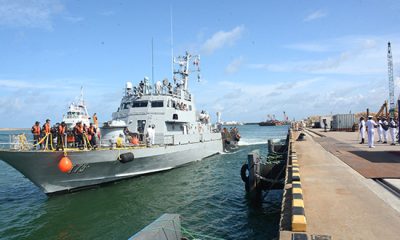
 Latest News6 days ago
Latest News6 days agoINS Kalpeni arrives in Colombo
-
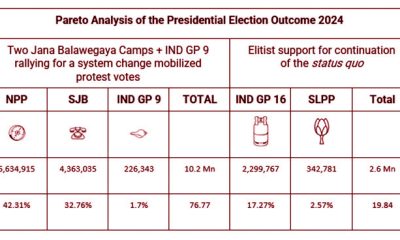
 Opinion5 days ago
Opinion5 days agoA Pareto analysis of ‘Jana Balawegaya’ force
-

 Editorial2 days ago
Editorial2 days agoProbe reports, skewed logic and emerging threats
-

 Editorial6 days ago
Editorial6 days agoWere the right questions asked?
-
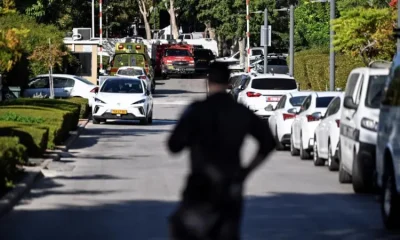
 Latest News6 days ago
Latest News6 days agoDrone ‘launched towards’ Israeli PM Netanyahu’s home
-
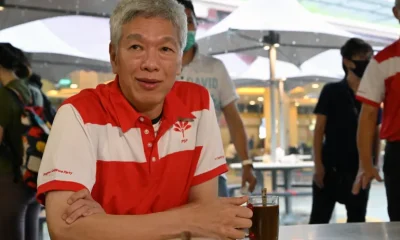
 Foreign News3 days ago
Foreign News3 days agoLee Hsien Yang, youngest son of Singapore founder, claims asylum in the UK
-

 Features5 days ago
Features5 days agoRelevance of a neutral foreign policy

